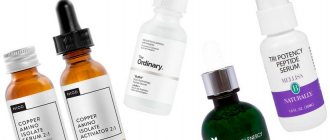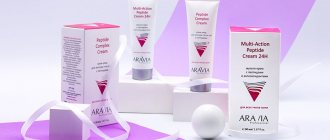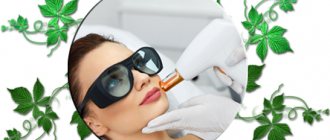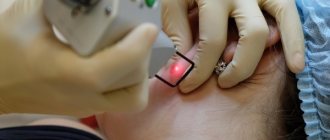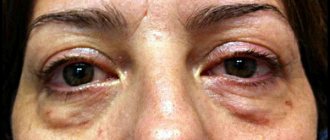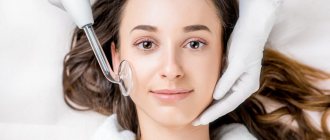Today, bioregulators, which are based on stable amino acid compounds, are the basis for the production of food additives, medicines, cosmetics, and special injections. Geroprotectors for skin rejuvenation, which contain peptides, are not a fiction at all, but a long-existing reality. Peptides offer people not only health and longevity, but also beauty. To talk about this issue, we invited Natalya Simonova, a cosmetologist and dermatologist who practices modern drugs as means for skin rejuvenation, to our office.
Geroprotectors for skin rejuvenation
Natalya Simonova told us that peptides are recognized as the most popular components of medical and cosmetic preparations. Geroprotectors for skin rejuvenation are preparations that in most cases consist of a peptide base. After all, peptides are not just substances invented for marketing purposes, but powerful regulators of such processes as:
- Wound healing.
- Restoration of the natural functions of organs and tissues.
- Cell rejuvenation.
The use of peptides in cosmetic preparations for home care and in clinical products, including mesotherapy procedures, has long been commonplace.
After all, peptides are real geroprotectors for skin rejuvenation.
Recommendations for use
Peptides for the skin can be very useful if you follow the rules when using them:
- Women over 50 are better off using multi-ingredient cosmetics that will satisfy all skin needs at once . Choose products that contain not only peptides, but also vitamins, minerals, moisturizing ingredients, and oils.
- When using a cream or serum for the first time, check its effect on the skin. Apply a little product to the crook of your elbow, if redness does not occur, use it on your face.
- Injections with peptides in cosmetology help to straighten the forehead and get rid of wrinkles around the eyes. It is better to carry out mesotherapy and biorevitalization procedures with an experienced cosmetologist.
- If aging began earlier than expected (35-40 years) , feel free to buy cosmetics with peptides for facial skin.
- Use creams with Botox effect in courses. They have a cumulative effect, so the result will be achieved 2-3 months after the start of use. Then you should take a break and repeat the course after six months.
- Peptide cosmetics must be stored away from direct sunlight , otherwise its effectiveness will be reduced to zero.
Peptides - what is the peculiarity of their use?
Experts have long recognized the fact that peptide bioregulators that enter the body through the digestive tract or by injection are the most effective. This is why cosmetics containing amino acid chains are not as effective as injections and capsules for oral administration. What is the reason? The molecules of the active substance need to overcome many barriers on the way to the cell.
Why are peptides considered geroprotectors?
Peptides are parts of protein cells. They are the parts that are involved in the construction of proteins. Initially, peptides were obtained by isolating their animal fractions. This created difficulties for their use as ingredients in dosage forms. The thing is that the breakdown of proteins into peptides is a complex process, fraught with the preservation of a number of bio-impurities in the resulting substance that can cause allergic reactions.
The production of peptides today is a streamlined process controlled by high technology. Geroprotectors for rejuvenation in the form of peptides are small synthetic compounds. They penetrate tissues and systemically affect cells, regulating their functions or restoring impaired functions.
Anti-Aging Benefits
If cosmetic ingredients, such as retinol, can cause redness or irritation, amino acid complexes take care of the skin with minimal risk of side effects.
Anti-aging peptides for the skin remove wrinkles, reduce the visibility of age spots, and improve complexion. They help slow down the aging process.
Wrinkle reduction
American scientists conducted a study in which 20 women aged 40 to 62 years took part. They received peptide rejuvenation preparations containing 3% collagen-like proteins and 1% booster molecule. Women applied the cream to the eye area for 4 weeks. The results showed a significant reduction in wrinkle depth.
As we age, natural collagen production decreases.
This causes the skin to sag, lose its elasticity, and wrinkles appear. The inclusion of peptide complexes in face and body care products slows down the aging process. Cosmetics will work to smooth out skin folds and fine wrinkles.
Improved skin condition
In studies that examined the effects of new synthetic peptides on the skin, they were found to increase skin elasticity and reduce sagging of the face.
- How to get property tax benefits for pre-retirees
- How to restore a discounted travel pass for pensioners
- Redcurrant Pie
The essence of the process is the suppression of nerve signals between the muscles and the brain. As a result, the fibers do not shrink and wear out less.
The benefits of a face cream with peptides will be especially noticeable for people who have problems with crow's feet around the eyes or deep lines on the forehead.
Peptide cosmetics solve many problems. Women over 50 experience a lack of nutrients, dry skin, and age spots appear. The care product maintains hydration, oxygen saturation, and evens out the complexion.
As with any other cosmetics, women over 50 should not buy products filled with skin peptides that wash off instantly. Amino acid chains will bring much more benefits if they are part of a light day cream or serum.
Anti-inflammatory effect
Facial peptides work as an antibiotic or a good hypoallergenic cream. They not only smooth out wrinkles, improve appearance and color, but also help remove inflammation. Redness can appear for various reasons - due to infection, increased blood flow, acne. All this is easier to eliminate when the skin is saturated with amino acids.
About 20 women took part in the study by Western scientists. The test revealed that enzymes in cosmetics help reduce redness and have a sunscreen effect - reducing the negative effects of ultraviolet radiation. Use products with these substances before going outside or if your skin is sensitive.
Various properties of peptides
A feature of the effect of peptides on the body is their selectivity. Today, more than 200 types of peptide compounds are known. And they all have different functions.
For example, a peptide bioregulator for the liver is useless for the prevention of bronchial diseases.
This is why there is a specialization of peptides even in cosmetology:
- From pigmentation.
- For weight loss purposes.
- Geroprotectors for rejuvenation.
- Smoothing wrinkles.
- Elimination of puffiness.
- Combating local fat deposits in individual parts of the body.
The use of peptides should be carried out under the supervision of specialists and with the use of testers in order to exclude the adverse effects of these substances, which may be caused by allergic reactions.
Flaws
Many dermatologists focus women's attention on the fact that there is no reliable evidence of the benefits of peptides for the skin. In some cases, they will not be as effective as proven retinoids or antioxidants.
- Checking your driver's license using the traffic police database
- How to strengthen the immune system of a 2-year-old child
- How to get a loan with bad credit history
Many pharmacists simply use this term to attract attention to their product, but do not add these ingredients to cosmetics.
In order for peptide compounds to be beneficial for the skin, it is important for the manufacturer to follow three rules:
- The amino acid chains in the cream or serum must be stabilized. Otherwise, they will be destroyed before they hit the skin.
- The peptides must be in a formula that will help them penetrate the stratum corneum. If they get into a cream with a thick, dense texture that acts superficially, there will be no effect from their use.
- The product must contain a large volume of amino acid compounds for the consumer to feel a clinical difference.
If you have just started using peptide cosmetics, side effects are possible:
- swelling;
- rashes;
- redness;
- itching
Not all peptides are geroprotectors
The effective use of peptides lies in the connection of these substances with precisely those receptors for which they are designed. Almost every cosmetic problem has its own set of preparations based on amino acid chains.
It is known that not all peptides are geroprotectors. This means that before using any drug, you must make sure that it is intended specifically for rejuvenation or preventing the development of aging processes.
Combination
Experts in the creation of peptide preparations for rejuvenation believe that the specific action of short peptides (when the current formula includes up to 4 amino acids) is at the cellular level. Any other drugs (such as vitamins, fruit acids, mineral serums) work at the tissue level. This is why the combination of retinol and peptides cannot cause any problems. But this does not negate the fact that it is better to use any pharmaceutical components under the supervision of a specialist.
About peptides in cosmetics
Peptides have been classified as geroprotectors for a long time. The thing is that these substances are constantly synthesized in the body. Their function is to regulate cell functioning.
- Unfortunately, largely due to the accumulation of toxins in the intercellular space, the amount of peptides produced by organisms decreases. Experts note a particular deficiency of necessary components in people over the age of 50.
- The noticeable effect of such a procedure as “mesotherapy”, if peptides are used in it, is explained by the active work not only of peptides, but also of additional ingredients such as hyaluronic acid. And peptides work unnoticed - it takes hours, days and even weeks to completely compensate for the deficiency and achieve a noticeable effect.
What are peptides
In simple terms, peptides are protein fragments consisting of two or more amino acids. We have already found out that the anti-age effect of taking short peptides is achieved due to their ability to influence protein synthesis, and therefore the rate of restoration of cells and tissues of the body. A study published on the website of the US National Center for Biotechnology Information states that different groups of peptides have different properties and, accordingly, perform different tasks: some reduce high blood pressure, others prevent the formation of blood clots, others accelerate the growth of muscle mass, and others act as antioxidants. and improve immunity and so on.
Numerous nutritional supplements are created based on peptides, where they are used alone or mixed with other nutrients such as proteins, minerals, vitamins and extracts. Most often today they are added to their diet by athletes who need a quick gain of muscle mass, active recovery after heavy physical activity, and proper functioning of the whole body. Peptides are also taken to restore body systems, ranging from the functionality of internal organs to improving memory and brain activity in general, and to boost immunity in the fight against viruses, bacteria, cancer and other diseases.
Geroprotectors for rejuvenation - how they can be dangerous
To avoid changing a given peptide chain (with a specific sequence of amino acids) by its rearranged variation, scientists have developed several carriers - substances that perform the function of attaching peptides to themselves unchanged and then detaching them in the body.
One of the carriers in cosmetology is hyaluronic acid. It allows not only to deliver peptides to the skin, but also to ensure their gradual release over a certain period of time. Such peptide therapy for cosmetic purposes actually ensures a full course, similar to sanatorium treatment: the peptides are released from the carrier gradually, since hyaluronic acid takes a long time to break down.
Geroprotectors for rejuvenation in the form of peptides allow:
- They activate exactly the cells for which they are designed.
- Active cells begin to produce the substances they need on their own.
- Cells “heal” themselves.
These processes are clearly visible when using peptides in cosmetology. Skin cells treated with peptides produce their own collagen, which restores elasticity to the skin and creates a lifting effect.
Neuropeptides used today in cosmetics additionally have a relaxing effect on individual tense areas, which improves skin regeneration.
Peptide complexes provide:
- Antioxidant protection.
- Moisturizes the skin.
- Protect the epidermis from harmful environmental factors.
Understanding the processes that we describe and can even evaluate with our own eyes, having tried it on ourselves - for the skin, it is easy to imagine how peptides work when they get into the cells of organs and tissues.
Geroprotectors for rejuvenation are used today in almost all industries related to human health. This is precisely the proof of their effectiveness and high safety. It is only a matter of time before the general public adopts peptides. Substances discovered in the 70s of the last century have not only not lost their relevance over the past 50 years, but have also significantly improved, expanding the list and methods of delivery to the necessary places in the body.
To main
Peptides in cosmetology. What can cosmetics with peptide complexes give our skin?
Peptides in cosmetology.
Amino acids and proteins have been used in cosmetics for a very long time. Cleopatra also took milk baths to moisturize and soften the skin; our grandmothers’ beauty recipes always included proteins of plant origin; today, for this purpose, they use “high-tech proteins” - biotechnologically obtained components of a protein nature. Peptides are substances of organic origin that consist of amino acid residues connected by peptide bonds. They are found in small quantities in almost all living cells. Peptides include many natural biologically active substances: some hormones, antibiotics, and blood plasma components.
So-called protein cosmetics, which contain protein components, are especially recommended for dry and aging skin. At the same time, it is obvious that in order to have any effect on skin cells, these components must reach them. And to do this, they need to cross the main barrier of the skin - the stratum corneum. The transdermal passage of amino acids has a number of advantages. First of all, the moisturizing effect of amino acids that penetrate the stratum corneum lasts longer than amino acids remaining on the surface of the skin. Since amino acids and peptides have difficulty passing through the stratum corneum, a number of methods are used to improve their penetration.
Chemical methods:
Lipophilic amino acid derivatives are used, for example, hydroxyproline palmitate, glycine octanoate, palmitoyl oligopeptides. Increasing lipophilicity by attaching a fatty acid chain to the peptide significantly increases its ability to penetrate the stratum corneum.
The charge is neutralized (many peptides are charged molecules, which prevents them from passing through the stratum corneum of the skin) by adding a lipophilic counterion. As a result, an ion pair is formed, bonded by electrostatic and hydrophobic interactions. Such an ion pair is lipophilic enough to penetrate the lipid matrix of the stratum corneum.
Enclose active ingredients (including amino acids and peptides) inside liposomes or nanosomes. Cosmetic liposomes typically consist of phospholipids, cholesterol, and small amounts of other ingredients. Nanosomes consist of nonionic surfactants that form closed vesicles, inside of which there is an aqueous phase.
They increase the permeability of the stratum corneum using enhancers. Enhancers, integrating into the lipid layers of the stratum corneum, disrupt their organization. Some solvents (for example, ethanol) and micellar solutions can extract lipids from the intercellular space, making the stratum corneum more permeable even to charged molecules - amino acids and peptides.
Physical methods:
Iontophoresis involves the electrical introduction of charged molecules into the skin using a weak galvanic current (approximately 0.5 mA/cm2) when an active electrode is applied to the surface of the skin.
Use of ultrasound (phonophoresis or sonophoresis). An ultrasonic wave can disrupt the organization of lipids in the stratum corneum by acoustic cavitation, as a result of which the distance between the lipid layers increases, the proportion of the aqueous phase increases and, consequently, the diffusion of water-soluble components along the intercellular spaces improves.
How peptides work
The mechanism of action of peptides remained a mystery for about 30 years, but today it is already known how exactly peptides regulate cell activity at the most basic level.
Classical body regulation systems, as a rule, ensure that certain cells in certain organs correctly perform their tasks, while they are not involved in the processes of cell division and maturation. Regulatory peptides direct their main attention precisely to the processes of cell division and maturation, as well as to their subsequent differentiation.
Regulatory peptides can directly influence the ratio of dividing, maturing, functioning and dying cells. When peptides enter the cell nucleus, they regulate the most important stages of the genetic program: they determine and maintain the proper rate of stem cell division; help new cells learn their functions and move towards maturation; in mature cells, peptides support the necessary set of enzymes and receptors. Peptides also increase the activity of intracellular systems and increase cell survival. Because this effect is exerted by peptides at such a fundamental level, the therapeutic properties of regulatory peptides are extremely diverse. Preparations made on the basis of peptides carry out physiological correction of body functions and are recommended for cell rejuvenation.
What can cosmetics with peptide complexes give our skin?
Peptides support the activity of cellular systems at a high level. This means that the skin is better protected, the cells are more resistant to lack of oxygen, the effects of toxic substances and other destructive agents.
Thanks to the effects of peptides, existing wrinkles can be reduced, the skin will be tightened, moisturized, will actively resist numerous aging factors, and the complexion will improve. Peptides also help strengthen facial contours, increase overall skin tone, and strengthen collagen fibers.
The constant use of peptides helps to normalize regenerative processes in organs and tissues.
Peptides affect the functional activity of tissues both under standard and critical conditions. This means that in any, even the most aggressive, conditions in which the human body finds itself, the action of peptides maintains the number of mature, active cells at the proper level, and also regulates their metabolism. This mechanism underlies the effective interaction of all organs, and largely thanks to it, our body can act harmoniously as a single whole, adequately respond to the changing conditions of the surrounding world and adapt to them.
Peptides play an important role in restoring the normal functioning of cells; they have high antioxidant activity, so when exposed to them, the skin rejuvenates and overall aging slows down.
Peptides affect the production of genes responsible for cell reproduction, and this is directly related to skin renewal. Peptides act as information carriers at the cellular level: they transmit appropriate signals to cells, triggering self-healing processes.
Peptides are transporters of active substances from cosmetic preparations into cells. The active ingredients of cosmetics penetrate the epidermis with difficulty and in very small quantities if they are not helped. Therefore, cosmetics devoid of conductive substances can have only minimal external effects on the skin. Peptide molecules are so small that they penetrate into the deepest layers of the skin and stimulate the production of all active substances in the right quantities, in full accordance with your biological rhythms and individual skin characteristics.
Peptides restore impaired microcirculation in various layers of the skin and normalize the condition of the walls of blood vessels. This, in turn, leads to improved blood supply and normalization of skin cell nutrition, which is manifested in improved complexion, reduction of spider veins and spider veins.
Peptides also affect hair: they help hair follicles develop, which helps strengthen hair roots and accelerate their growth.
Peptides do not cause the formation of antibodies, which minimizes the risk of an allergy to the drug.
Sources: “How to get rid of wrinkles” by A.P. Soldatenkov, report “Transepidermal delivery of amino acids and proteins - myth or reality?” Malgorzata Gronwald - Chelkowska , Warsaw University of Technology DERMIKA - Cosmetics of a New Generation, Poland ( 2001 )
Features of bioregulators
Khavinson's peptides are an organic substance that does not contain chemical or artificial components, and therefore is perfectly accepted by the human body. Today, scientists have managed to develop various types of bioregulators that can quickly restore and improve the functioning of organs.
You can buy peptide bioregulators for different organs and systems, and also choose a special course. Medicines are available for the cardiovascular system, digestion, respiratory organs, genitourinary system, nervous system and brain, for the organs of vision, for normalizing hormonal levels and others. In addition, peptides are widely used in cosmetology.
